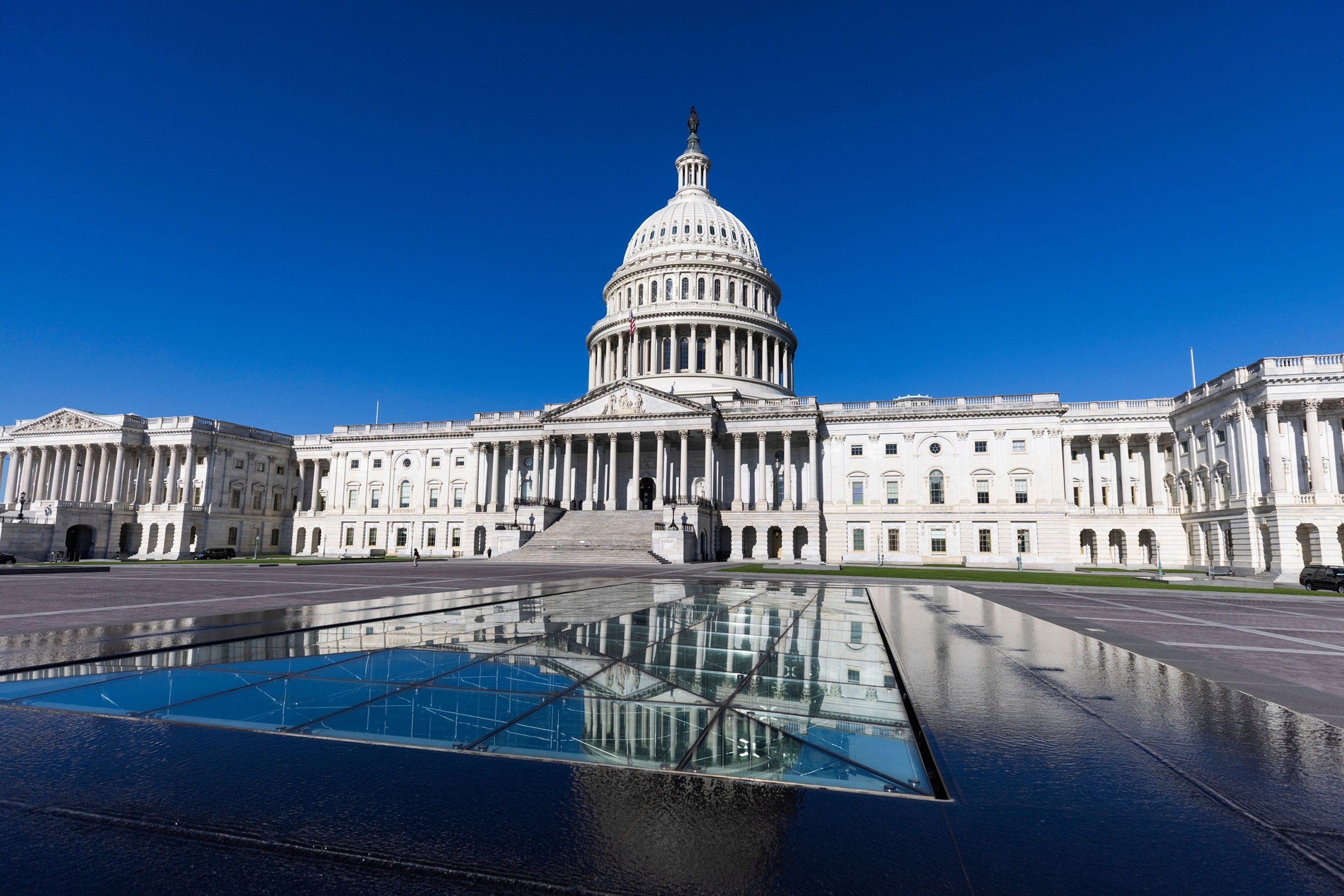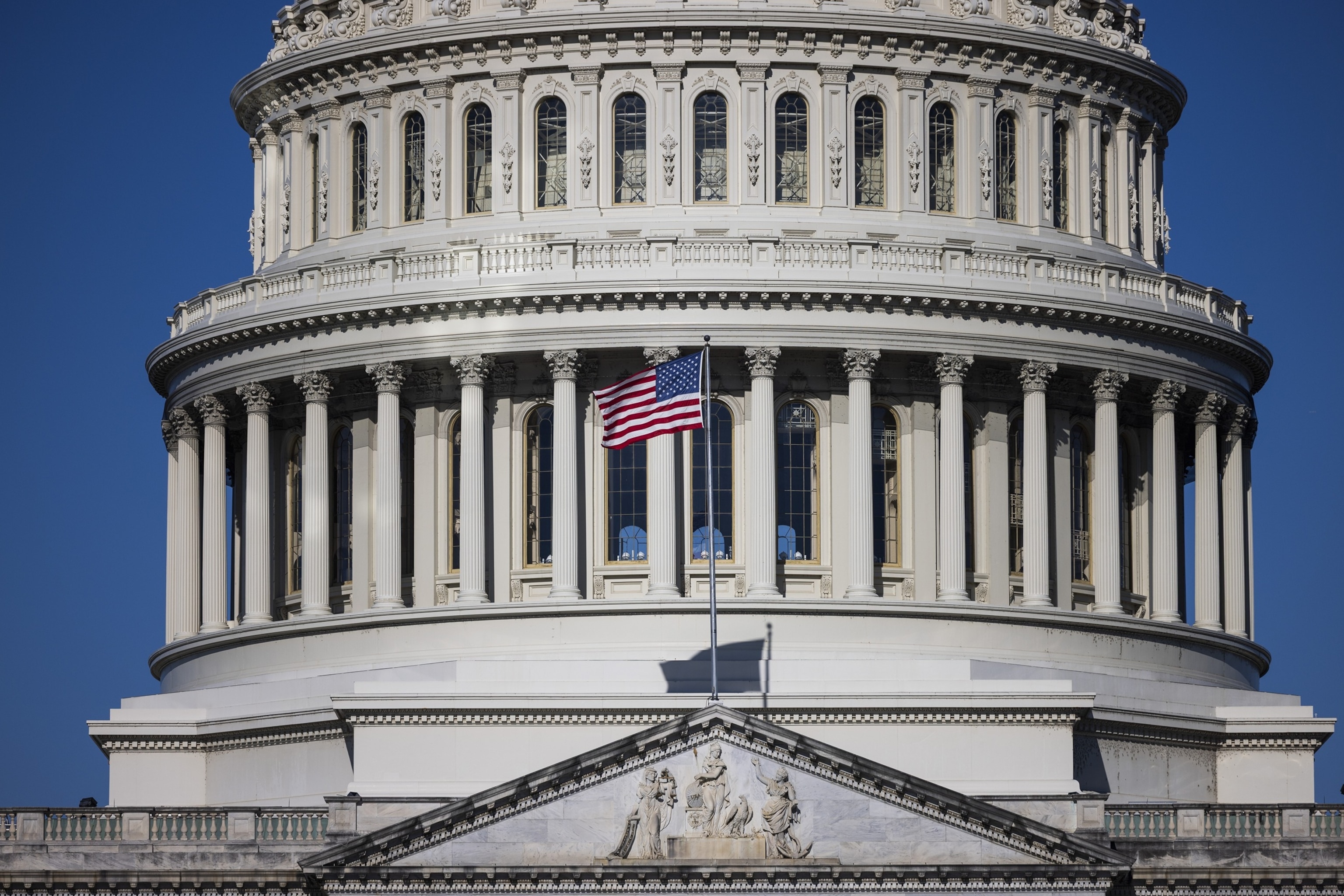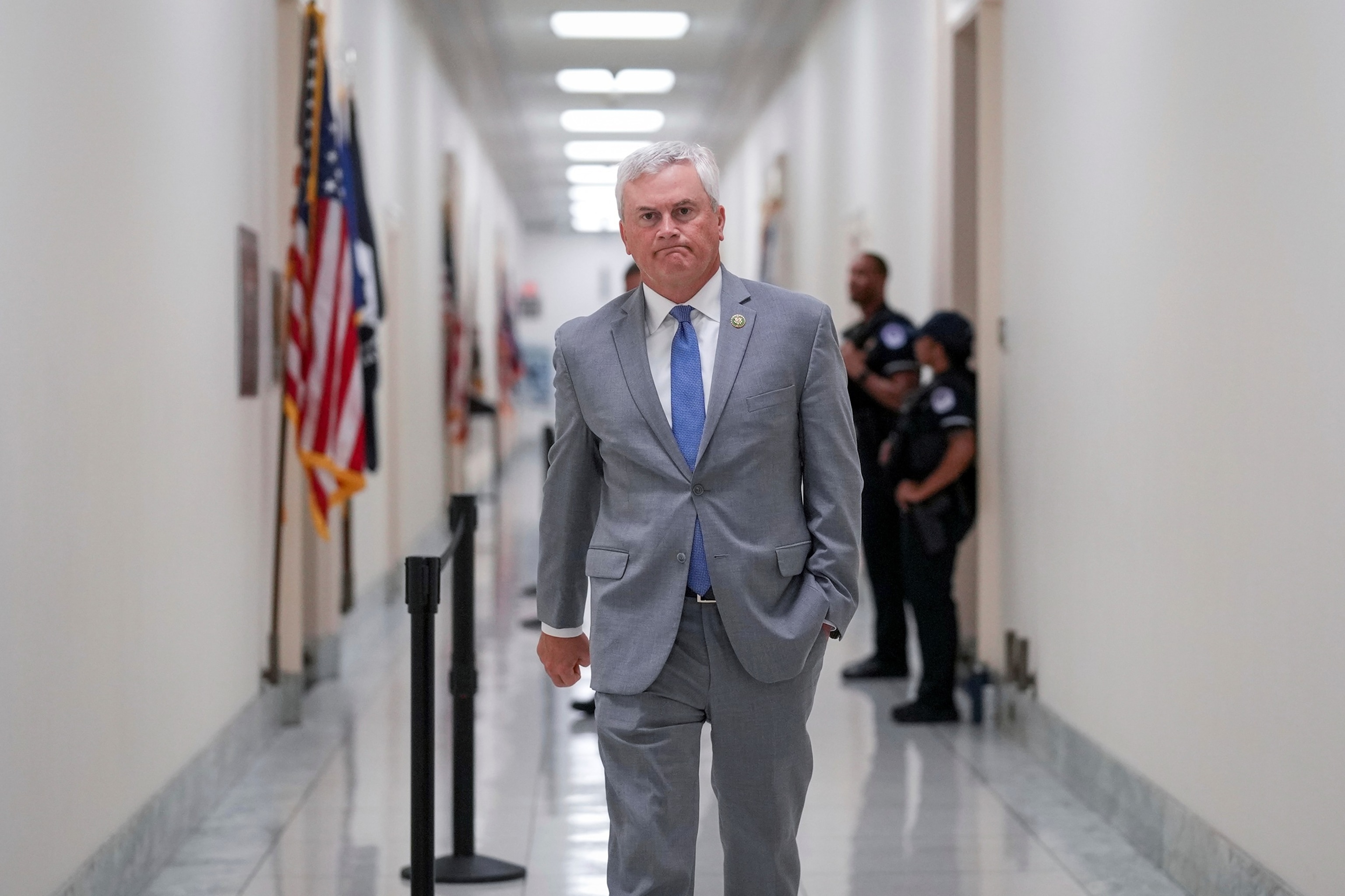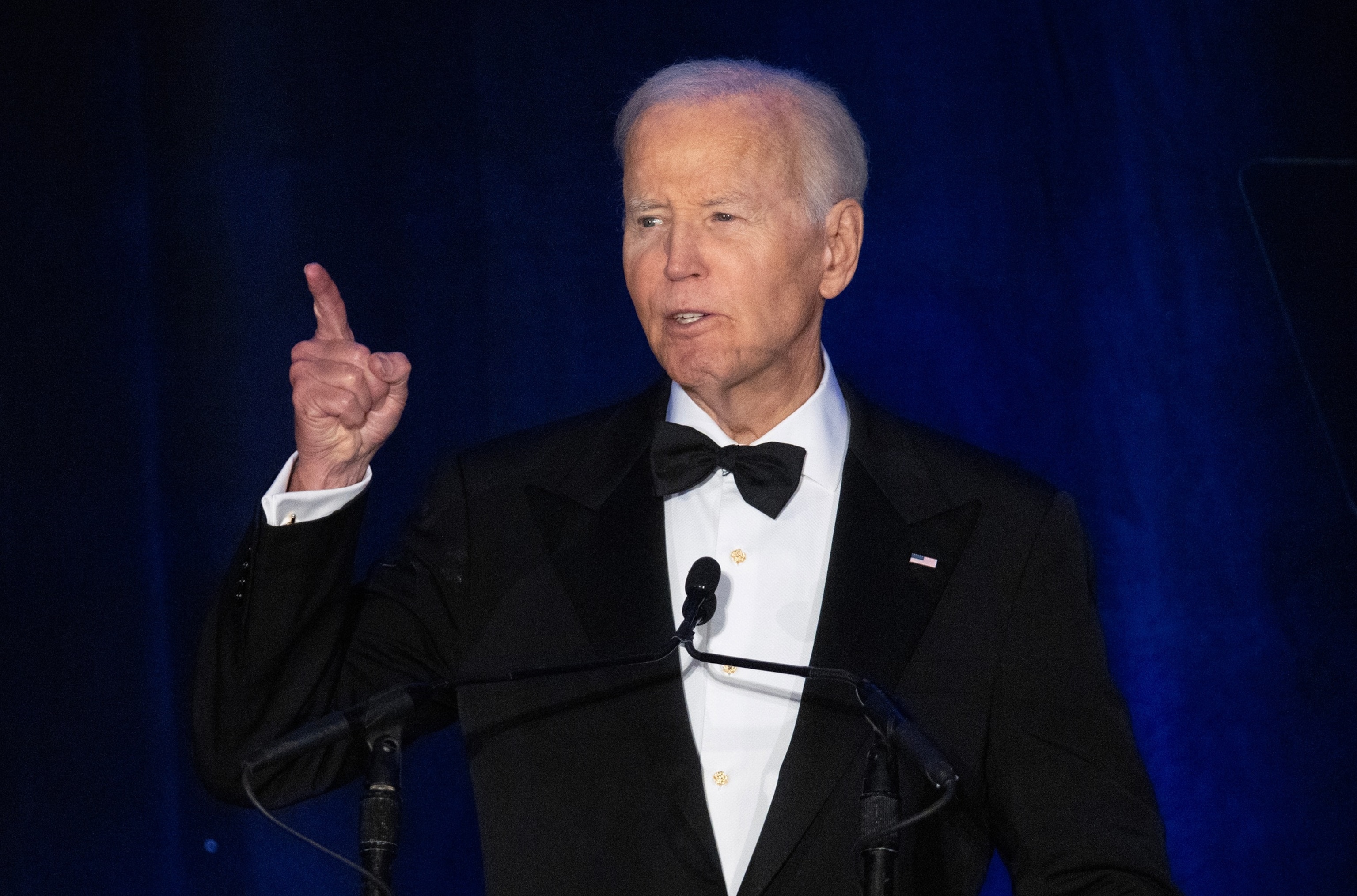As lawmakers finally return to the Capitol after a six-week break, perhaps the most critical legislative item looming is the deadline to fund the government — and Republicans are set to face questions about what’s next for Congress on the Jeffrey Epstein files.
Here’s a look at the key obstacles and priorities when both chambers return to Capitol Hill on Tuesday.

A view of the US Capitol in Washington, August 26, 2025.
Jim Lo Scalzo/EPA/Shutterstock
Government funding
Congress must act to fund the government before Oct. 1, or the government will shut down.
Given the political reality that funding the government will require a heavy dose of bipartisan cooperation, top Democratic leaders — Sen. Chuck Schumer and Rep. Hakeem Jeffries — have demanded bipartisan talks with President Donald Trump and GOP leadership to plot a path forward on funding.
So far, that request has not been granted, though Trump said last month that he’ll likely meet with Schumer and Jeffries ahead of the Sept. 30 funding deadline.

A view of the US Capitol in Washington, August 26, 2025.
Jim Lo Scalzo/EPA/Shutterstock
“Well, I will, I guess. But it’s almost a waste of time to meet because they never approve anything,” Trump said on Aug. 13.
Democrats are expected to put up a fight — making clear they want to restore cuts to Medicaid and rural hospital funding in exchange for their votes to fund the government. Presuming all 53 Senate Republicans vote aye, at least seven Democrats would have to join a bipartisan majority. That prospective cooperation is in limbo given Trump’s request last week for another rescissions package, which aims at clawing back $4.9 billion of previously approved foreign aid funding.
The White House is unlikely to accept Democrats’ demands, but Republican leaders have not yet unveiled their plan to avoid a shutdown either.
Despite promises to fund the government through regular order, it is nearly impossible for Republicans — who have razor-thin majorities in both chambers — to pass 12 appropriations bills through committee and the floor. So far, the House and Senate have each only passed two appropriations bills through their respective chambers – though the lower chamber has pushed nine bills out of committee and the Senate has managed to clear eight of its bills from committee. That leaves an improbable feat for appropriators — in terms of floor time and political capital — to push all that paper across the Capitol this month.
Without a bipartisan breakthrough to avert a shutdown, a stopgap continuing resolution is the anticipated choice for Republicans. However, given the state of negotiations, the likelihood of a shutdown one month from the deadline is certainly credible.
The Epstein files
Congress returns Tuesday with the same problem it had when lawmakers jetted home a day early to embark on their recess. The Epstein saga is poised to engage Congress on several fronts and that begins on Sept. 3, when Reps. Thomas Massie and Ro Khanna plan to hold a news conference with survivors of Epstein’s sexual abuse.
The two lawmakers hope to receive the necessary signatures on their discharge petition to force a floor vote on a measure compelling the release of the Epstein files, which goes against Speaker Mike Johnson’s preference for the Department of Justice to take the lead on transparency with the Epstein matter. House Oversight Committee members plan to meet with the victims on Tuesday, a day before the news conference is sure to create a spectacle on Capitol Hill.
It remains an open question as to whether the House will be able to move forward on any basic legislation. Before recess, the lower chamber was paralyzed over a standoff regarding the Epstein files, when the House Rules Committee failed to tee up any bills for floor votes as the members disagreed over the Epstein files issue. As Democrats remain dissatisfied with Justice Department’s records compliance with a House Oversight Committee subpoena, the Rules panel is likely to resume its pressure campaign that could invariably renew the stalemate.
Meanwhile, the GOP-led Oversight Committee has subpoenaed the Epstein estate, hoping to secure documents by Sept. 8.
Former Labor Secretary Alex Acosta will appear before the committee voluntarily behind closed doors on Sept.19. In 2008, Acosta served as U.S. attorney for the Southern District of Florida when the office cut a deal with Epstein to avoid federal prosecution for sex trafficking allegations.

House Oversight Committee Chairman James Comer speaks to reporters during a break in the deposition with former Attorney General Bill Barr, at the Capitol in Washington, August 18, 2025.
J. Scott Applewhite/AP
On Sunday, Oversight Chairman James Comer sent a letter to Treasury Secretary Scott Bessent, requesting relevant suspicious activity reports (SARs) to assist its oversight examining the enforcement of sex trafficking laws, specifically in connection with Epstein and his associate Ghislaine Maxwell.
The committee also subpoenaed several other high-profile individuals, such as former president Bill Clinton and former Secretary of State Hillary Clinton.
Epstein was arrested in July 2019 and charged in a federal indictment with conspiracy and child sex trafficking. He died in custody a month later, while awaiting trial. His death was ruled a suicide by hanging.
Maxwell was convicted in 2021 by a federal jury on sex trafficking and other charges. She is currently serving a 20-year prison sentence for aiding and participating in Epstein’s trafficking of underage girls, which involved a scheme to recruit young women and girls for massages of Epstein that turned sexual.
Federalization of Washington, D.C., and other cities
Trump’s deployment of the National Guard in D.C. as well as plans for other cities will be a focus for members of Congress as they return to town.
The House Oversight Committee plans to advance a slew of D.C. crime bills to back up Trump’s crackdown on crime in the city, while Democrats push legislation to end Trump’s federalization of the nation’s capital, require federal agents to wear body cameras and other measures to assert D.C. home rule and advance transparency.

Armed National Guard soldiers from West Virginia patrol the Mall near the Capitol in Washington, Aug. 26, 2025.
J. Scott Applewhite/AP
Trump announced plans to ask Congress for more funding to combat crime in Washington, and Sen. Lindsey Graham said he’d work to pass a so-called D.C. crime fund. It’s not yet clear how Republicans will look to tackle approval for this funding, but it will no doubt be a contentious battle in Congress that could emerge as larger questions of government funding are considered.
Congress will also have to weigh in on Trump’s efforts to federalize Washington’s Metropolitan Police Department. Under the law, Trump can utilize Washington’s police department for up to 30 days, so long as he gives appropriate notice. After that, he needs congressional approval to extend the authority. That time will soon expire.
Congress has never approved an extension of this authority, and due to its unprecedented nature, aides on Capitol Hill say they’re still attempting to work out exactly how a vote to extend authority would work.
The vote is not privileged, and therefore, it’s likely it would need 60 votes in the Senate. Democratic aides stress this threshold, but Republican aides say the matter could be up for consideration.
Trump nominees
The Senate departed Washington even as Trump aggressively pushed Republicans to stay in town to process confirmations of more than 100 of his nominees.
Republicans departed Washington promising to make changes to the Senate rules governing how nominees are confirmed despite objections from Democrats. When the Senate returns, expect that debate to pick right back up where it left off.
Senate Republicans have said they intend to make modifications to the Senate rules aimed at expediting passage of lower-level nominees. This will likely play out as a behind-the-scenes debate followed by some procedural hijinks on the Senate floor.
Ukraine/Russia
Congress is also back in town for the first time since Trump’s summit in Alaska with Russian President Vladimir Putin.
With a muted response from Republicans following the historic meeting, and continued bloodshed in Ukraine, lawmakers are sure to reengage on foreign affairs. There could be movement on the Russia sanctions bill in the Senate though nothing formal has been announced.

President Donald Trump and Russian President Vladimir Putin shake hands as they pose on a podium on the tarmac after arrival at Joint Base Elmendorf-Richardson in Anchorage, Alaska, August 15, 2025.
Andrew Caballero-Reynolds/AFP via Getty Images
Oversight Committee’s Biden cognitive decline investigation
Chairman James Comer is continuing his investigation into former President Joe Biden’s “cognitive decline” and use of an autopen in office. More former Biden officials are expected to appear for closed interviews in the coming weeks, including press secretary Karine Jean-Pierre, senior deputy press secretary Andrew Bates and chief of staff Jeff Zients.
Several other Biden aides testified behind closed doors over recess, providing more fodder for Republicans.

Former President Joe Biden speaks at the National Bar Association’s annual convention, July 31, 2025 in Chicago.
Scott Olson/Getty Images
Anita Dunn, who testified on Aug. 7, told investigators that while she observed a “physical” decline in Biden during his four years in office, she maintained the belief that he was calling the shots and mentally engaged. House Republicans said she revealed that Biden’s inner circle came to a consensus he should not take a cognitive test, concluding it would offer no political benefit.
Biden himself rejected reports of cognitive decline during an appearance on ABC’s “The View” in early May.

